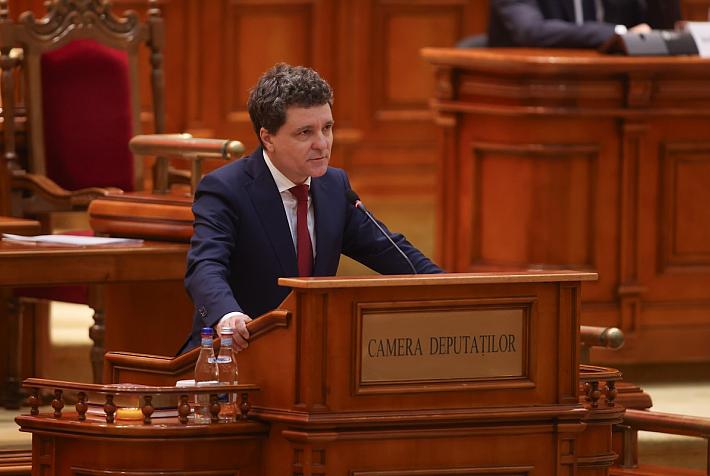ING Romania expects country's economy to reach 2.6% growth in 2025

ING Bank analysts have revised Romania's GDP growth forecast for 2024 to 1.0% from a previous estimate of 1.3%, citing persistent weak growth and rising risks tied to the country's electoral context.
However, growth is expected to accelerate to 2.6% in 2025, supported by EU-funded investments, wage increases, and Romania's anticipated Schengen accession.
Romania's economic performance has been sluggish, with GDP growth of just 0.9% year-to-date (YTD) in 2023 and third-quarter growth at 1.1%, below expectations.
Public spending surged in the lead-up to elections, but manufacturing, services, and agriculture remain underperforming sectors. Weak domestic production capacity and strong imports also weigh on the growth potential.
ING Bank Romania chief economist Valentin Tătaru highlighted that civil engineering activities, linked to infrastructure investments, outperformed other sectors, signaling some positive momentum. Nevertheless, the IT sector, a key economic driver, has struggled, and drought conditions have exacerbated food inflation pressures.
ING projects inflation at 5.0% in 2024, easing to 4.4% in 2025. However, risks remain tilted to the upside, fuelled by fiscal reforms and external volatility. The National Bank of Romania (BNR) is expected to adopt a cautious approach, with no additional rate cuts until the second quarter of 2025 at the earliest. ING forecasts a 75 basis-point reduction in 2025, bringing the key rate to 5.75%.
Several factors are expected to support economic acceleration in 2025, including base effects, (moderate) real wage gains, and large-scale, EU-funded infrastructure projects, particularly in transport.
Schengen accession is expected to boost trade and business productivity starting in January 2025.
Pension indexation scheduled for early 2025 will further bolster private consumption.
Despite these positives, Romania's structural reliance on imports and European economic weakness remain significant challenges.
Romania's budget deficit is projected to remain high, at 8.0% of GDP in 2024 and 7.0% in 2025. While fiscal reform is necessary to regain market credibility, it poses short-term risks to growth and inflation. Tătaru cautioned that delayed reforms could lead to suboptimal tax measures, exacerbating economic challenges.
Despite these risks, the economist expects long-delayed infrastructure projects to yield productivity gains, potentially boosting business confidence and investment. Romania's strategic location for nearshoring and friendshoring could also offer opportunities in a reshaped global economic landscape.
While fiscal pressures and political uncertainty weigh heavily on the short-term outlook, Romania's longer-term potential lies in its ability to capitalize on EU-backed infrastructure modernization and anticipated gains from Schengen integration. However, effective fiscal management and structural reforms will be critical in unlocking this potential while maintaining market access and investor confidence.
(Photo: Ruletkka/ Dreamstime)
iulian@romania-insider.com












